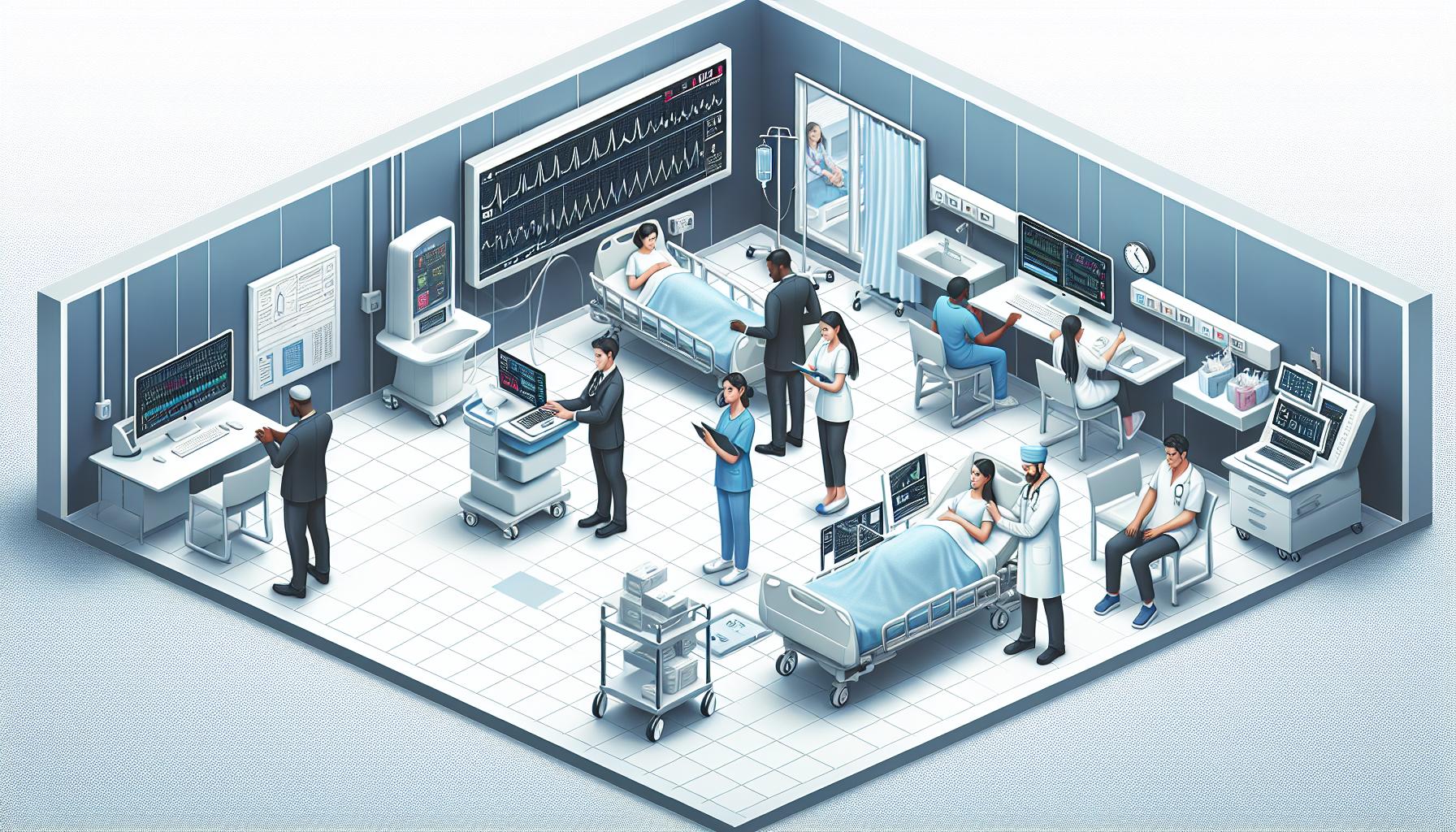Best LMS in Healthcare
Choosing the right Learning Management System (LMS) for the healthcare industry is not just about technology—it’s about shaping better medical practices, improving patient safety, and driving stronger patient outcomes. In a field where continuing education is vital, the right platform helps doctors, nurses, researchers, and support staff sharpen their staff skills, adapt to evolving compliance regulations, and stay aligned with global medical standards.
I’ve explored a range of LMS software built for medical organizations. Some focus on compliance automation, while others strengthen clinical skills or manage training courses for medical devices and medical products. By understanding which systems align with your organization’s needs, you can streamline learner progress, empower career growth, and ensure both professionals and patients benefit.
What is a Healthcare Learning Management System?
A Healthcare Learning Management System(LMS) is a specialized platform designed to train professionals across the care continuum—from researchers and doctors to frontline nursing staff and even medical representatives. Unlike generic platforms, a healthcare-focused LMS supports compliance modules, training paths, and role-based learning tailored to specific job functions.
For example, a doctor may need clinical training on new medical devices, while a sales team might require digital-first selling modules for medical product launches. Similarly, administrators can assign learning assignments for regulatory updates or prepare nurses for telehealth platforms.
These systems also help medical organizations deliver online training, whether through in-person seminars, webinars, or self-paced e-learning. Many platforms now integrate with health tech firms, offering support for modern innovations like artificial cardiac pacemakers training or AI-assisted diagnosis tools.
At their core, healthcare LMS solutions are built not just to deliver knowledge but to maintain compliance, track certifications, and ensure staff are equipped to improve patient outcomes.
Benefits of Using an LMS in Healthcare

Implementing an LMS in healthcare goes beyond digitizing training. It has a direct impact on safety, compliance, and professional development.
- Compliance Training and Automation
Regulatory frameworks like HIPAA, OSHA, and JCAHO demand strict adherence. A healthcare LMS makes compliance training structured and automated. Features like compliance automation and audit-ready reporting ensure that certifications never lapse and compliance regulations are consistently met. - Skill Development and Career Growth
A strong LMS supports self-directed learning, offering custom training courses and pathways that keep medical staff updated on emerging medical practices and technologies. This supports not only improved staff skills but also long-term career growth. - Tracking Learner Progress
Through detailed dashboards, administrators can track learner progress, assess performance, and close competency management gaps. This makes it easier to spot areas where additional training paths or refresher modules are required. - Cost-Effectiveness and Flexible Learning
Traditional training—like in-person seminars—often comes with travel costs and limited reach. A healthcare LMS eliminates these expenses by hosting scalable online training with access to content libraries filled with interactive modules, videos, and real-world simulations. - Improved Patient Safety and Outcomes
At the end of the day, an LMS is about improving the quality of care. By ensuring up-to-date certifications, clinical training, and ongoing continuing education, medical professionals deliver safer, more effective care—resulting in improved patient safety and measurable patient outcomes.
| Benefit | Description |
| Compliance Training | Standardized modules ensure adherence to regulatory requirements like HIPAA and OSHA |
| Skill Development | Custom courses maintain up-to-date knowledge in medical specialties |
| Progress Tracking | Real-time monitoring of course completions and performance metrics |
| Cost-Effectiveness | Reduces travel expenses and material costs through digital content |
| Flexible Learning Methods | Webinars, videos, quizzes cater to different learning preferences |
These benefits make implementing an LMS crucial for any healthcare organization aiming for excellence in education and compliance management.
Key Features to Look for in a Healthcare LMS
Choosing the right Learning Management System (LMS) for healthcare involves understanding critical features that enhance learning and ensure compliance. Below are essential attributes to consider.
1. Knowledge Assessment
Effective LMS platforms incorporate various tools to evaluate learners’ understanding. Quizzes, interactive modules, and simulations provide immediate feedback, helping medical staff identify knowledge gaps. Regular assessments keep learners engaged and ensure the material is retained.
2. Certification
A robust healthcare LMS must support certification programs. These systems offer integrated certification management, allowing users to earn and track certifications directly within the platform. Automated reminders help maintain up-to-date credentials, ensuring compliance with industry standards.
3. LMS Integration
Integration capabilities streamline workflows by connecting the LMS with other healthcare software. Seamless integration with Electronic Health Records (EHR), Human Resource Management Systems (HRMS), and communication tools enhances operational efficiency and data consistency across platforms.
4. L&D Reporting and Analytics
Detailed reporting tools are crucial for monitoring progress and outcomes. Advanced analytics provide insights into course completions, learner performance, and engagement levels. Customizable reports help administrators make informed decisions about training programs.
5. Compliance Management
Compliance is paramount in healthcare education. The ideal LMS offers built-in compliance training aligned with regulations like HIPAA and OSHA. Features such as automated tracking of completed courses ensure adherence to legal requirements while minimizing administrative workload.

The most important feature of an LMS in healthcare is compliance and regulatory training management. It ensures that our staff meets all legal and professional standards, keeps certifications current, and can adapt to evolving regulations. With automated tracking, audit-ready reporting, and mobile access, we empower our team to stay compliant and focus on what matters most—patient care.
Use Cases for Healthcare LMS
The power of an LMS lies in its adaptability across diverse medical needs:
- Compliance Training: Automated training assignments aligned to job roles ensure medical organizations maintain strict adherence to HIPAA, OSHA, and other mandates.
- Skill Development: Pathways covering medical products, medical practices, and patient interaction build stronger staff skills and enhance confidence.
- Onboarding New Staff: Structured modules accelerate learning, moving beyond in-person seminars to blended online training and practical simulations.
- Continuing Education & CME: Platforms like Bytecasting LMS shine here, offering specialized content for physicians and researchers pursuing continuing education credits.
- Performance Evaluation: Quizzes, role-based assessments, and clinical training measure not just theory but application in real-world scenarios.
- Patient Education Programs: Some health tech firms and hospitals use LMS-driven content libraries to educate patients on chronic disease management or post-surgery care.
- Emergency Preparedness: From pandemics to natural disasters, LMS modules help staff train for crisis situations effectively.
Pricing Information
Pricing varies based on subscription type, user size, and additional features.
- Subscription Models: Monthly and annual subscriptions suit most organizations, while perpetual licenses appeal to large medical organizations.
- User-Based Pricing: Small clinics (1–50 users) may prefer basic LMS software, whereas medical organizations with 500+ users often require advanced platforms
Additional Costs: Features like competency management, advanced reporting, and integrations with telehealth platforms or health tech firms may add to the base price.
User-Based Pricing
Most LMS platforms in healthcare use a tiered pricing model based on the number of users:
- Small Teams (1-50 Users):Suitable for small clinics or departments.
- Medium Organizations (51-500 Users):Fits midsize hospitals or specialized units.
Large Enterprises (501+ Users):Designed for large hospital networks or multi-facility organizations.
Additional Features Costs
Additional functionalities can increase the base price of an LMS:
- Advanced Reporting Tools: Enhance analytics capabilities but may incur extra fees.
- Integration Capabilities: Seamless integration with other healthcare systems might be an add-on cost.
Customization Options: Tailoring the LMS to specific organizational needs could involve higher setup fees.
Final Thought
Choosing the right LMS for healthcare is pivotal for maintaining high standards in education and compliance. By evaluating platforms on specific needs such as integration capabilities, user experience, and analytical tools, healthcare organizations can significantly enhance their training programs.A robust LMS not only ensures compliance with regulations but also supports skill development and continuous education. The flexibility in learning methods caters to diverse preferences among medical staff making it a critical component for any healthcare institution aiming to excel.


